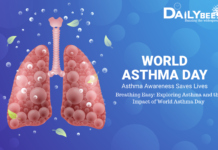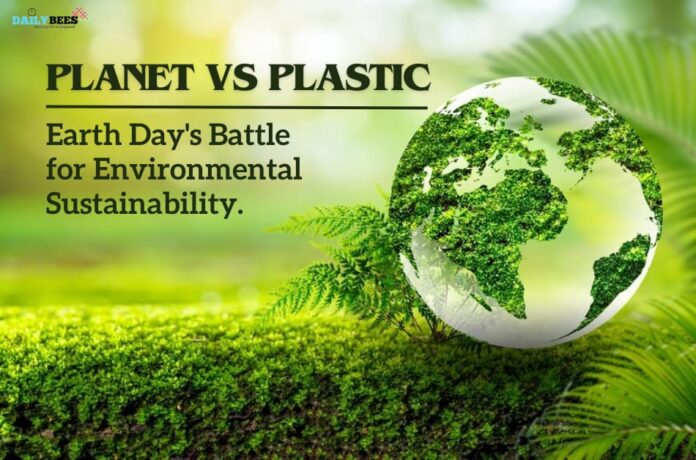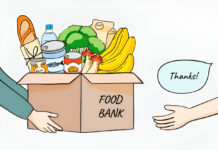Table of Contents
Planet vs. Plastics: Earth Day’s Battle for Environmental Sustainability
Take action. Now or never!
Although many governments have banned single-use plastic, it’s our responsibility to use plastic cautiously for a greener and better future.
Earth Day is celebrated on April 22 annually to remind people of the importance of environmental protection and sustainability. Every year, the UN organizes various events and initiatives to spread awareness, inspire change, and help people build a closer relationship with nature. Earth Day has grown into a global movement in the past 50 years, with millions of individuals uniting to promote environmental conservation.
Current Environmental Issues:
- Climate Change: Rises in temperature, extreme weather conditions, and rises in sea level due to the melting of glaciers are some of the alarming problems caused by humans due to deforestation and the burning of fossil fuels.
- Pollution: The environment and human health are corroding due to contaminated air, water, and soil. The main cause of this contamination is unmanageable plastic waste, mainly single-use plastic.
- Loss of Biodiversity: The rate of extinction of species has been accelerated due to habitat destruction because of human intervention, climate change, and overexploitation.
Theme of the Year: Planet vs. Plastics
Plastic waste management has become a headache for all governments. It is the major hurdle in the path of any country to achieve sustainable goals. That’s why the UN has kept “Planet vs. Plastics” as the theme for Earth Day 2024 to make children aware and remind adults about the dangerous pollution that plastic is creating, especially single-use plastic. Let’s understand how dangerous plastic is and can be in the future:
Environmental Impact:
Plastic takes hundreds and thousands of years to decay in the environment, depending on its quality, thus causing serious threats to wildlife and ecosystems. Plastic manufacturing and disposal increase greenhouse gas emissions and worsen climate change.
The decomposition of plastic may occur more slowly in marine environments because of lower levels of oxygen and sunlight. There are more than 5 trillion pieces of plastic floating in our oceans, a study shows. Every year, millions of fish, seabirds, turtles, and marine mammals perish as a result of ingesting or being entangled in plastic waste.
Impact on Human Health:
We know but still ignore that we are absorbing plastic, inhaling plastic, and eating plastic. We are well aware that plastic is toxic, but we aren’t discontinuing our use of it. Plastic may cause:
- Chromosomal and reproductive system abnormalities
- Adult-onset diabetes
- Impaired brain and neurological functions
- Cardiovascular system damage
- Blood-brain barrier
- Cancer (20% higher than childhood cancer)
Plans of the UN to Handle the Plastic Crisis:
The UN remains firm in its commitment to ending plastics for the sake of human and planetary health, and for Earth Day 2024 on April 22nd, it is calling for a 60% reduction in the manufacturing of all plastics by 2040. Here are the plans of the UN to achieve the goal:
- Education on Babies vs. Microplastics: Microplastics have spread like epidemics in every part of our lives. According to one study, infants breathe or eat ten times as much microplastic as adults do via plastic furniture, clothes, toys, and even playground equipment like the soft crumb tire. The UN aims to involve people, groups, companies, and governmental entities in campaigns to promote sustainable living and lessen the use of plastic.
- Wipe out single-use plastic by 2030: The UN Global Plastic Treaty urges people to use reusable alternatives to minimize the amount of throwaway plastic bottles, straws, and bags and motivates companies and decision-makers to adopt programs aimed at reducing plastic use and advancing sustainable substitutes.
- Reject fast fashion: Nowadays, polyester, an oil-based material, makes up 69% of the textiles we wear. Thousands of small fabric particles, measuring 5 mm or less, are released into the water every time we wash our clothes. The nuclear fallout from our own creativity must be stopped before it’s too late.
- Educate yourself on plastics: Some small changes in our daily routine, like using reusable bags for shopping, carrying reusable eating utensils while traveling, separating plastic waste from vegetable waste, or joining or organizing cleanliness drives nearby, can save our planet from unnecessary burdens from plastic.
Conclusion:
This is our planet, so it’s our responsibility to maintain its system. The health of humans and ecosystems is impacted by plastic pollution, but daily efforts can mitigate the issue. Earth Day acts as a spark for environmental action, encouraging people and institutions to take up urgent environmental problems like pollution, deforestation, climate change, and biodiversity loss. On this Earth Day, let us take this chance to reiterate our dedication to preserving the environment and making sure that everyone lives in a cleaner, healthier, and more resilient environment.
































